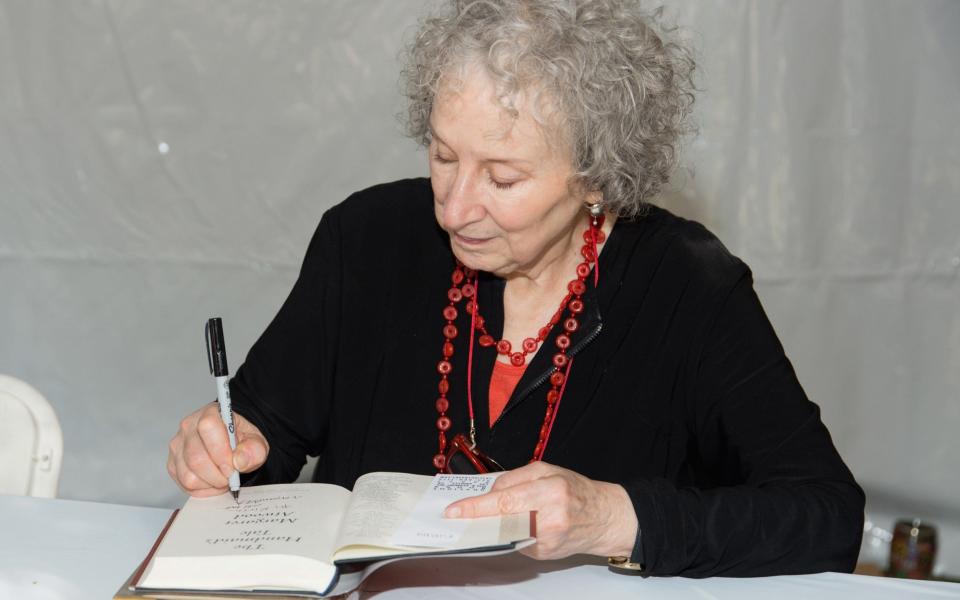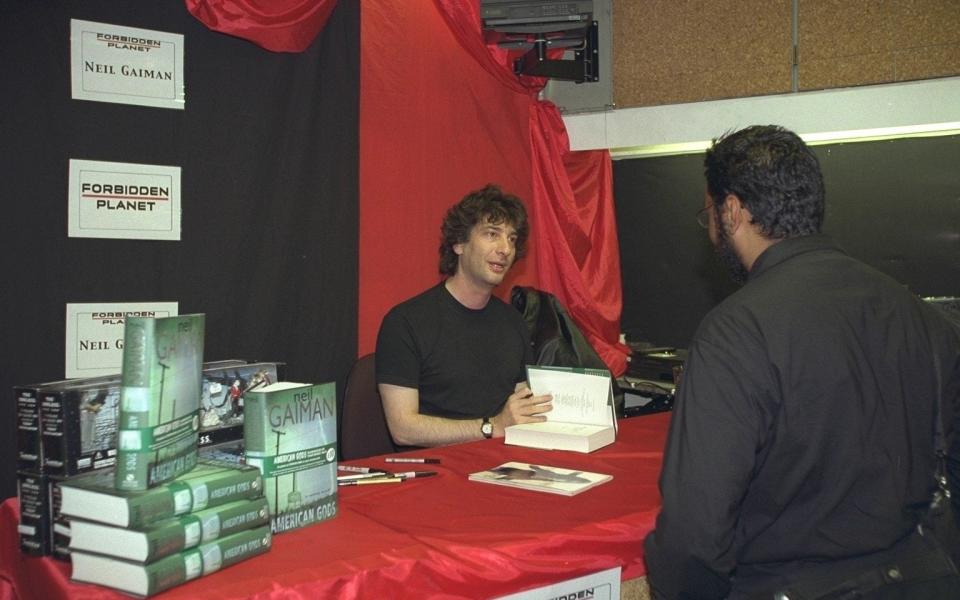‘I sold minus three copies’: life at the bottom of the book promo circuit

Like any debut author, Chelsea Banning couldn’t help feeling excited about her first-ever book signing ceremony. After 15 years working on her novel, an Arthurian fantasy saga, the big launch was finally on. Her local bookshop in Ashtabula, Ohio, had kindly offered to host, invites had gone out, and 37 folks had RSVP’d to say they’d come. On the day, though, even that modest turn-out proved to be a fantasy too.
“Only 2 people came to my author signing, so I was pretty bummed about it,” she posted on Twitter last week. “Kind of upset, honestly, and a little embarrassed.”
What happened next took the literary confessional genre into a new realm, as other writers weighed in with their own tales of embarrassing no-shows – among them many world-famous authors. Margaret Atwood, author of the Handmaid’s Tale, told of a signing to which “nobody came, except a guy who wanted to buy some Scotch tape”. Neil Gaiman, the Sandman creator, outdid her, recalling an event with Terry Pratchett that “nobody came to at all”.
Even Stephen King, whose books have sold more than 350 million copies, had a horror story. “At my first Salem’s Lot signing, I had one customer,” he wrote. “A fat kid who said, ‘Hey bud, do you know where there’s some Nazi books?’”
David Nicholls, author of One Day, reassured the crestfallen Banning that this was a “rite of passage that happens to everyone”. Yet despite Nicholls’s sympathetic words, for any author who isn’t a household name, it is a “rite of passage” where the passage, sadly, never ends.
Only 2 people came to my author signing yesterday, so I was pretty bummed about it. Especially as 37 people responded "going" to the event. Kind of upset, honestly, and a little embarrassed.
— Chelsea Banning Author (@chelseabwrites) December 4, 2022
I should know. As a foreign correspondent for this newspaper, I have written three books – none of which have propelled me to quite the levels of fame of Atwood or Nicholls.
A particular low point of my authorial career came at one signing event, where the few punters who came assumed the books on the table in front of me were freebies. I didn’t have the heart to tell them otherwise. I left having technically sold minus three copies. Beat that, Stephen King.
More generally, life on the book promo circuit – for non-famous authors anyway – has all the glamour of touring as a third-rate indie band. With some 350 literary festivals in the UK every year now, publishers are keen for their “talent” to appear at them.
But just as not every band is Led Zeppelin or Oasis, not every author is Jordan Peterson or Sally Rooney. For most of us, an audience in double figures counts as a big turnout. And for every punter who turns up – if they turn up at all – only a small percentage ever seem to buy the book afterwards.

Take, for example, my gig as “warm-up act” to BBC war reporter Kate Adie at the Chorleywood Literary Festival 2008, to which I lugged about 100 books. For the benefit of those who’ve never heard of it, Chorleywood is a well-heeled commuter town outside London, and on the day, a decent 200-plus crowd turned up.
The draw was Adie however, not me, and afterwards, the queue for book signings at her table dwarfed the tiny trickle at mine. I sold 12 copies that day – most, I suspect, purchased by Adie groupies who felt sorry for me. Which, after train costs, my publisher’s take, and other overheads, netted me a profit of about minus £10 on the day.
As authors' average annual earnings are now just £7,000 a year, according to statistics out this week from the Authors’ Licensing and Collecting Society, you can see why people like me don’t quit the day job.
But the finances aren’t the only reason why signing events can be excruciating. If you're a band playing a gig where hardly anyone turns up, you can at least just get on with the music, which masks the fact that nobody’s there.
Literary events, however, tend to be in libraries and book shops, where the sound of silence feels all the louder. At times, you almost pray for Stephen King’s fat kid to barge in and ask where the Nazi books are. Anything to take the spotlight off you and your embarrassment.

Nor does the anguish end when you leave. For the moment you do, you’ll be back on Amazon to check your sales rankings. If you think people are obsessive about Facebook “Likes” or Twitter re-Tweets, wait till you see an author checking Amazon's daily books rankings.
It ranks about eight million books worldwide, from current bestsellers to the King James Bible, so if you’re in the top 10,000 you're not doing badly. Stay in triple figures for a while and you might even become a bestseller.
Most of us, however, slide down the ranks sooner rather than later. Below 100,000 or so, your precious masterpiece takes its place alongside such engaging reads as the European Accountancy Handbook 2015, and various urology textbooks.
It gets worse. Which authors have not, while browsing in their local Waterstones, picked up a few copies of their own book and quietly shifted it onto the “Waterstones recommends” section? Okay, maybe that last one is just me.
Finally, if your book fails to sell all its copies, the publisher will eventually have to “pulp” them – a polite word for having them destroyed and recycled. The one saving grace is that generally, your publisher will cover the costs of this themselves, rather than sending you the bill. Having to pay yourself to have your literary pride and joy reduced to compost would be the ultimate indignity.
Still, just like rock’n roll, all authors have to start somewhere, and the odd moment of humiliation keeps the literary soul lean and keen. Besides, at promo events, having even one punter turning up to show an interest in your work is worth a thousand book sales. Well, 20 or 30, anyway. Over the years, I have “gigged” everywhere from Barking Library through to schools, pub function rooms, and book clubs in readers’ front rooms, and enjoyed every one of them – and so too did my readers. Or so they both told me afterwards…

 Yahoo Movies
Yahoo Movies 
